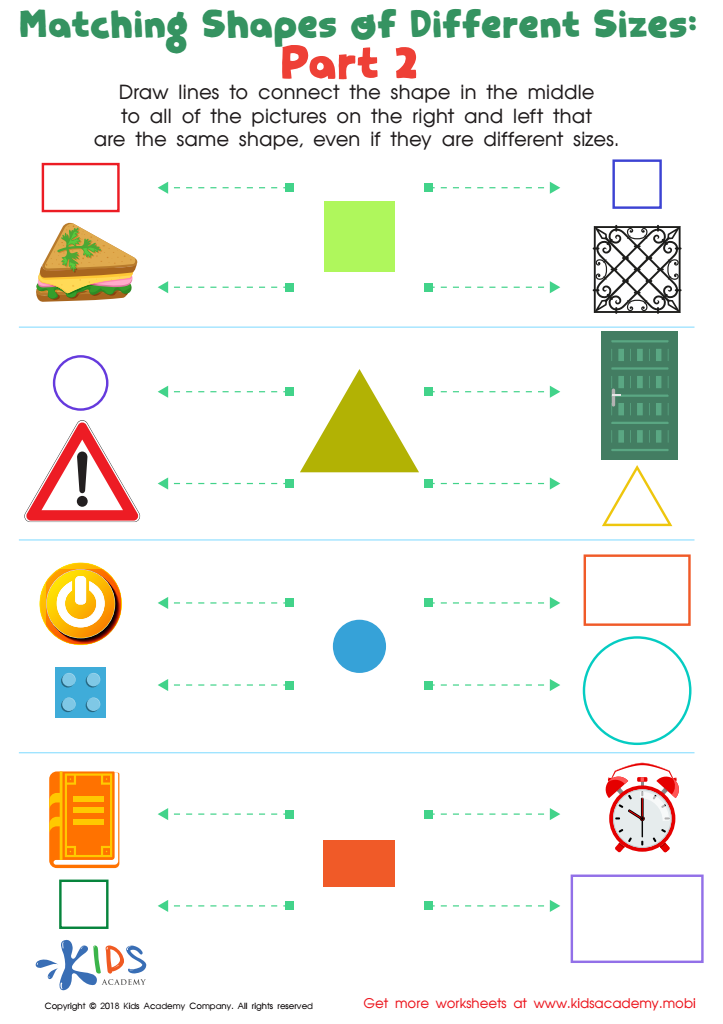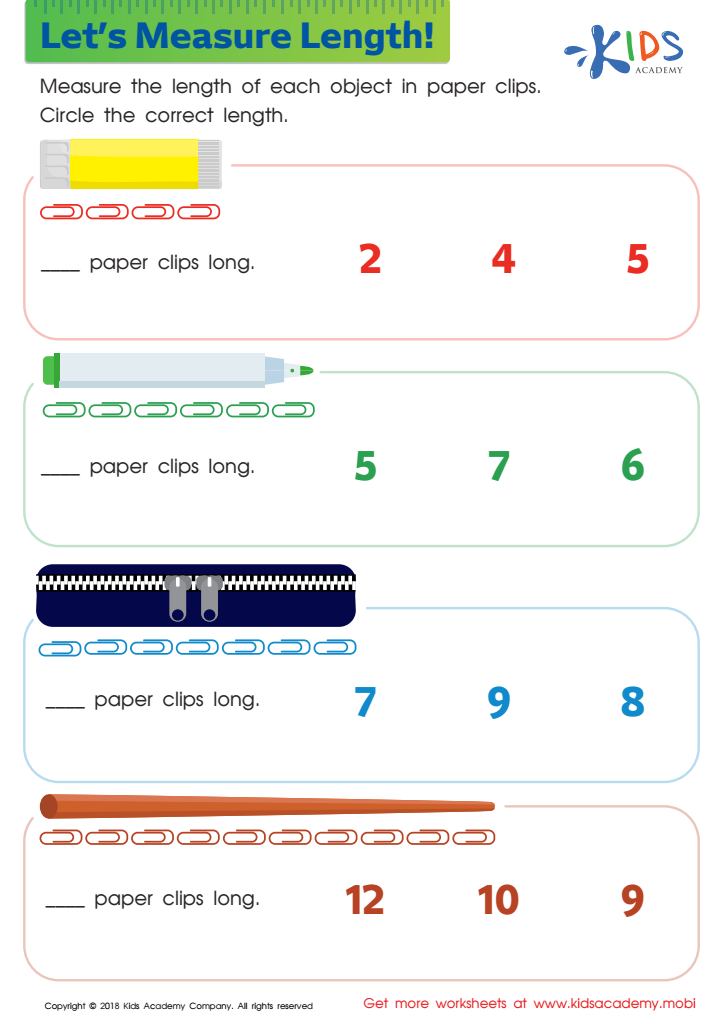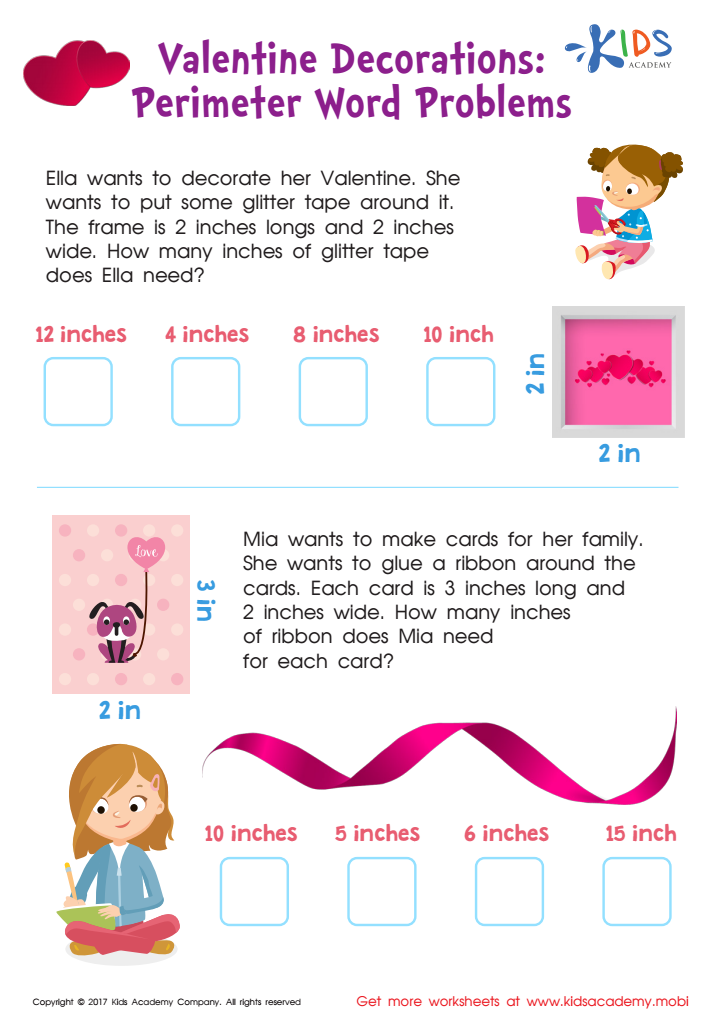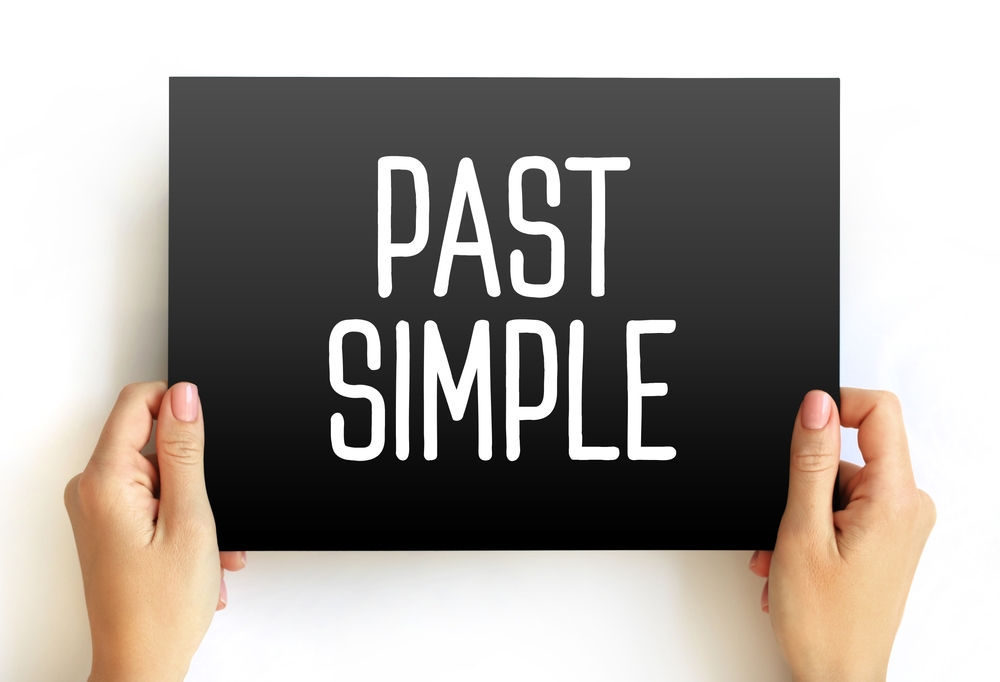Applying math concepts Worksheets for Ages 3-9
3 filtered results
-
From - To
Explore our engaging "Applying Math Concepts Worksheets" for ages 3-9, designed to make learning fun and interactive! These worksheets help young learners develop essential math skills through exciting activities and real-world applications. Covering topics like counting, addition, subtraction, and basic geometry, our resources ensure children build a strong mathematical foundation. Easy-to-follow instructions and vibrant visuals capture kids' attention while fostering problem-solving and critical thinking abilities. Ideal for parents and teachers, these printables can be used in the classroom or at home. Start your child's mathematical adventure today and watch them thrive in their learning journey!


Geometry: Part 2 Worksheet


Lets Measure Length Worksheet


Perimeter Word Problems Worksheet
Applying math concepts in early education, particularly for ages 3-9, is crucial for a child's developmental foundation. At this age, children are naturally curious and open to learning, making it an ideal time to introduce mathematical concepts through play and daily activities. Engaging young learners in practical applications of math—such as counting blocks, measuring ingredients in a recipe, or organizing toys by size or color—helps them perceive math as a relevant part of their world.
Kate's Namespace Transforming abstract concepts into tangible experiences supports cognitive growth, enhancing problem-solving skills and logical reasoning. Furthermore, children who grasp basic math skills early on are more likely to succeed in later academic endeavors, as a solid understanding of simple math forms the backbone for more complex mathematical operations.
Additionally, incorporating these concepts fosters essential skills, such as critical thinking, spatial awareness, and even social skills through group activities. Parents and teachers play a pivotal role by modeling enthusiasm for math and creating an environment that encourages exploration and inquiry. As these young learners develop a positive attitude towards math, they build confidence and a lifelong appreciation for the subject, ultimately influencing their overall academic success and everyday decision-making skills.
 Assign to My Students
Assign to My Students
















